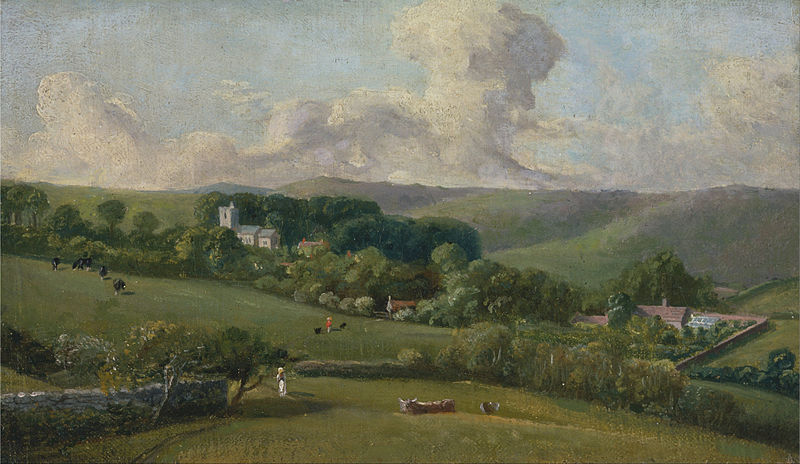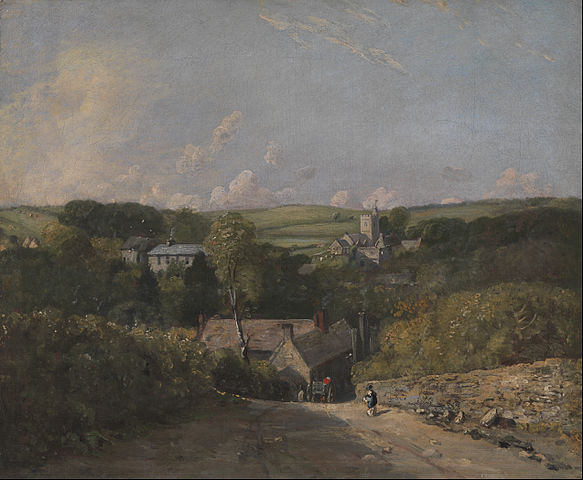
Newly available books may be of interest for students of linguistics, English literature, and sociology, as well as related subjects.
The Sound of William Barnes’s Dialect Poems: 1. Poems of Rural Life in the Dorset Dialect is a series of three Open Access books available for free download.
The major advantage of this edition of poems by an author who published in the 1800s is that the online version is accompanied by a recording of each poem in authentic pronunciation, so that readers can have a better understanding of the sound and meaning of each individual verse.
It is a major challenge for any reader of English as a foreign language to fully understand standard idiomatic English. From there, to learn to appreciate non-standard dialects may be even more difficult.
Yet a valuable part of English literature, such as the poetry of Robert Burns, was written in dialect form, and the English rural tradition inspired many poems written in nonstandard speech.
Even among native born researchers of English language poetry, dialect poems of the 1800s tend to be overlooked.
One example is the writings of William Barnes, honored by these three Open Access volumes.
Barnes was a philologist, priest, and mathematician who found time to write over 800 poems, some in Dorset dialect, a group of English language varieties and accents used by much of the native population of South West England, the area sometimes popularly known as the West Country.
Barnes was very interested in linguistics, which makes his writings of special interest for linguists.
Among languages that he studied were Greek, Latin, French, Hebrew, Hindi, Italian, Russian, Welsh, and Old English.
Barnes believed that the English language should be revised to eliminate Greek, Latin and other foreign influences for the sake of clarity.
So instead of the word photography, which derives from two Greek words meaning drawing with light, Barnes believed that the standard English term should be sun-print.
Of course, no one paid any attention to Barnes’ suggestions, and the word photography is still being used, while no one says sun-print if they mean photography.

There have been a number of dedicated admirers of the writings of Barnes, including the noted poet W.H. Auden.
The Thammasat University Library collection includes many books by and about Auden.
Auden stated that he was delighted by every line of William Barnes.
This is because of the freshness of his verse and the message of freedom of country life. For example, the poem Linden Lea by Barnes, which was translated from his dialect version into standard English speech when it was set to music. Its theme is that people in cities work for difficult bosses, but those who live in the country are more free:
Let other folk make money faster
In the air of dark-room’d towns;
I don’t dread a peevish master,
Though no man may heed my frowns.
I be free to go abroad,
Or take again my homeward road
To where, for me, the apple tree
Do lean down low in Linden Lea.
Researchers have examined the reputation of Barnes and his status in the field of English studies:
Is William Barnes one of the canonical poets of nineteenth-century England? It depends on which authority you consult. In The New Oxford Book of Victorian Verse (1987) he is represented by twenty-three poems on nineteen pages. If space denotes value, this allocation makes him as significant a poet as Clare and Algernon Charles Swinburne, more important than Matthew Arnold (thirteen pages), and much more so than Dante Gabriel Rossetti (eight) or Emily Brontë (seven). In The Cambridge Companion to Victorian Poetry (2000), on the other hand, Barnes is not even considered. Does it matter that England’s two ancient universities appear divided on Barnes’s place in the canon of Victorian poetry? Yes it does. For as long as Oxford and Cambridge are ranked among the best universities in the world they will continue to be the principal brokers of cultural capital in traditional English studies and maintain their status among what used to be called general readers, who have known ever since October 1900, when Arthur Quiller-Couch published his canonizing Oxford Book of English Verse (which “sold over half a million copies by the time a second edition appeared in 1939”) that the best poetry gets bound in dark-blue cloth covers with gilt lettering. Oxbridge’s endogenous difference of opinion on the importance of Barnes’s poems therefore highlights a dilemma faced by literary critics and historians of English literature, and explains why some Victorianists continue to publish Barnes-free anthologies and handbooks. Fence-sitting critics evade this problem by classifying Barnes as a minor poet. How would they know, we wonder? Poets have traditionally done more than writers in any other verbal medium to capitalize on the rhythmical and acoustic properties of language by foregounding the materiality of its signifiers. Responding adequately to poetry as poetry entails being alert to such matters. Hardy’s judgment that the “true poetic beauty” of Barnes’s dialect poems will be obvious even to “persons to whom the Dorset r and z are unknown utterances” is thus unsatisfactory. Nor is the difficulty circumvented by Patmore’s reassurance that “half-an-hour’s reading” suffices to make Barnes’s poetry as accessible as if it had been written in standard English. Assessing what Seamus Heaney would call the “earworthiness” of Barnes’s 1844 dialect poems is not easy, however, if your only guides through the opacity of his printed pages are a few historically dodgy recordings of them made by late-twentieth-century Dorset enthusiasts. If Barnes is minor for some other reason than the fact that he wrote in non standard English, we are never told what it is. “I cannot enjoy one poem by Shelley and am delighted by every line of William Barnes,” W. H. Auden confessed, “but I know perfectly well that Shelley is a major poet, and Barnes a minor one.” Here Auden invokes that mystificatory attribute of connoisseurship, “taste,” which stands in the same relation to textual reception as “genius” does to textual production. Marking the points at which the investigable becomes inscrutable, such words are what Peter Medawar used to call “analgesic pills which dull the ache of incomprehension.”… Barnes began his extraordinary attempt as a self-educated lexicologist, grammarian and dialectologist to record in print the heterophemy of Dorset speech long before the landmark texts and institutions of dialectology emerged. When he published his first book of poems in 1844, the Philological Society was barely two years old. There was no English Dialect Society until Walter W. Skeat founded one in 1873, and the first volume of Joseph Wright’s English Dialect Dictionary, whose principal source of Dorset usages was the 1848 edition of Barnes’s Poems of Rural Life did not appear until 1898.

(All images courtesy of Wikimedia Commons)
